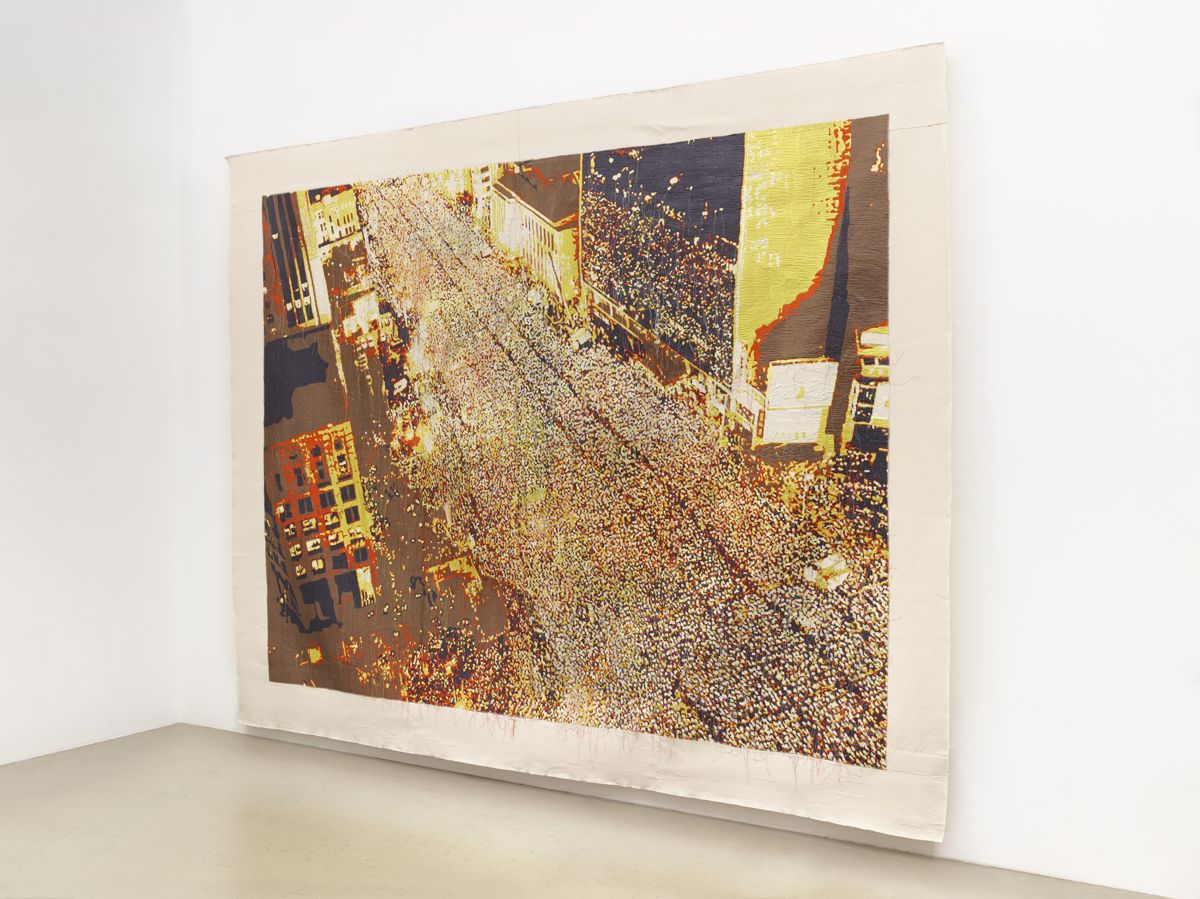Leeds Art Gallery’s new exhibition, “Found Cities, Lost Objects,” curated by Lubaina Himid, explores urban narratives through diverse artistic mediums. The exhibition showcases artworks that delve into themes like urban safety, navigation, belonging, and power structures, while celebrating Leeds’ feminist heritage and its impact on urban life.
What is the theme of Leeds Art Gallery’s new exhibition “Found Cities, Lost Objects”?
Found Cities, Lost Objects, curated by Turner Prize-winning artist Lubaina Himid, is Leeds Art Gallery’s latest exhibition that explores urban narratives through painting, sculpture, photography, and film. The artworks delve into themes like urban safety, navigation, belonging, and power structures, fostering a dialogue between art and audience. This exhibition also celebrates Leeds’ feminist heritage and its impact on urban life.
Leeds Art Gallery Presents: Found Cities, Lost Objects
Leeds Art Gallery has inaugurated a thought-provoking exhibition that is set to redefine urban narratives through an array of artistic lenses. Found Cities, Lost Objects commences on January 26, weaving a visual tapestry that spans over four decades of artistic endeavor. Curated by the esteemed Turner Prize-winning artist, Lubaina Himid, the exhibition invites visitors to traverse through a collection that includes painting, sculpture, photography, and film, collectively addressing themes as diverse as urban safety, navigation, belonging, and power structures.
The featured artworks not only resonate with the socio-cultural ethos of urban existence but also reflect the gallery’s commitment to fostering dialogue between the artist and the audience. This exchange of observations and imaginings serves as the exhibition’s cornerstone, aiming to enhance self-awareness and our own relationships with the urban spaces we inhabit. Leeds Art Gallery, in conjunction with the Arts Council Collection, showcases this impressive array, accentuating it with contributions from local Leeds and Yorkshire artists.
Significantly, the exhibition honors the city’s feminist heritage, spotlighting Leeds as the birthplace of the Reclaim the Night movement and the establishment of the Leeds Animation Workshop (LAW) and The Pavilion Women’s Photography Centre. These pioneering entities not only challenged the status quo but also created platforms for self-representation and skill-sharing among women.
Artistic Visions of Urban Life
Amidst the wide-ranging collection, several pieces stand out, compelling the visitor to pause and ponder. Helen Chadwick’s Train of Thought captures the internal musings of a woman seated on the London Tube, a striking encapsulation of private reflection in public domains. Contrasting this, susan pui san lok’s Trailers (RoCH fans and Legends) juxtaposes the quotidian British high street with dynamic martial arts sequences, presenting a montage of the everyday and the fantastical.
Another facet of urban exploration is presented by Hannah Starkey, who traces her interest back to the concept of the flâneuse, echoing the 19th-century French archetype of an urban wanderer. Her photography, capturing a reflection in the act of photo-taking, offers a fragmented and distorted view of the streets, symbolizing the multifaceted nature of city life. Meanwhile, the domestic becomes a canvas for the external world in Michelle Duxbury’s film, which documents her life during the pandemic when she converted her room into a camera obscura, bringing the external milieu of the streets into her secluded space.
Deborah Smith, Director of the Arts Council Collection, applauds the exhibition’s diversity and the fresh perspectives borne out of it. Smith emphasizes the dynamic storytelling facilitated by the open brief given to artists, underscoring art’s significant role in shaping urban landscapes and, by extension, our collective experiences.
Leeds: A Cultural Nexus
Leeds’ cultural landscape is further enriched by the presence of this exhibition, as noted by Councillor Jonathan Pryor, deputy leader and executive member for economy, culture, and education at Leeds City Council. Pryor heralds the inclusion of local artists alongside international counterparts as both fantastic and enlightening, given the varied interpretations of culturally salient themes.
The exhibition provides a stage for a constellation of artists, including but not limited to Dani Abulhawa, Phyllida Barlow, Helen Cammock, and Jade de Montserrat, each offering unique insights into the urban condition. In doing so, Found Cities, Lost Objects spotlights the city’s capacity to host world-class cultural dialogues, thereby reinforcing Leeds’ reputation as a nexus of arts and culture.
Visitors of the Leeds Art Gallery are not only spectators but also participants in an ongoing conversation about the essence of urban life as seen through the prism of gender and artistic expression. The gallery, with its rich history and contemporary relevance, continues to be a beacon of cultural enrichment and intellectual engagement for the city and beyond.
For more information about Leeds Art Gallery and the exhibition, please visit their official website.
Artists Featured in the Exhibition:
– Dani Abulhawa
– Manuela Amey
– Phyllida Barlow
– Chloë Brown
– Sophie Calle
– Hackney Flashers
– Helen Cammock
– Helen Chadwick
– Rebecca Chesney
– Jesse Darling
– Milena Dragicevic
– Michelle Duxbury
– Feed
– Anthea Hamilton
– Mona Hatoum
– Young In Hong
– Leeds Animation Workshop
– Yve Lomax
– Markéta Luskačová
– Melanie Manchot
– Caroline Mardon
– Sam Metz
– Lisa Milroy
– Jade de Montserrat
– Maggie Murray
– Krissi Musiol
– Matrix Feminist Architecture
– Cornelia Parker
– Pavilion
– Phyllis Pearsall
– Susan Philipsz
– susan pui san lok
– Tai Shani
– Lynn Silverman
– Nicola Singh
– Hannah Starkey
– Magda Stawarska-Beavan
– George Storm Fletcher
– Rhea Storr
– Anne Tallentire
– Elizabeth Wright
ENDS
- The exhibition “Found Cities, Lost Objects” at Leeds Art Gallery explores urban narratives through diverse artistic mediums.
- The artworks delve into themes like urban safety, navigation, belonging, and power structures.
- The exhibition celebrates Leeds’ feminist heritage and its impact on urban life.
- The featured artworks foster a dialogue between art and audience, enhancing self-awareness and our relationships with urban spaces.
- The exhibition includes contributions from both local Leeds and Yorkshire artists, as well as international artists.
